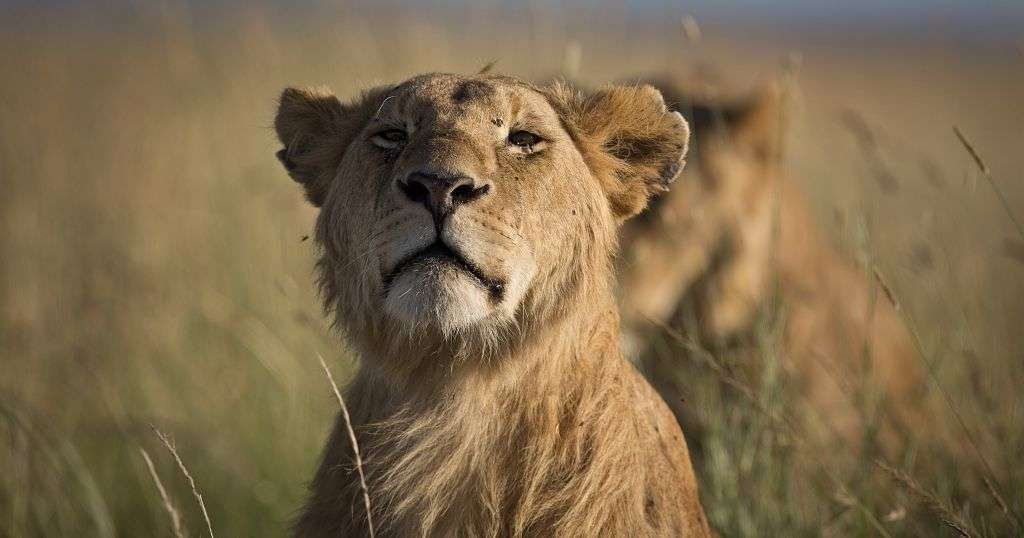Diaspora, Africa – (African Boulevard News) – The king of the jungle is under threat as the wild lion population continues to dwindle, with a shocking 90% disappearance from their historical habitat, according to a report by the World Wildlife Fund (WWF). These majestic creatures, once roaming freely across vast stretches of Africa, are now facing the very real possibility of extinction.
The WWF report paints a grim picture, estimating that there may be as few as 23,000 wild lions left in the world. Their habitat has been steadily eroded by human encroachment, deforestation, and the expansion of agricultural land. Moreover, the illegal wildlife trade and trophy hunting have further exacerbated the decline in their numbers. It is a tragic state of affairs that demands immediate attention and action.
Lions have vanished from over 90% of their historical range, and this loss is deeply concerning. These big cats play a crucial role in the ecosystem as top predators, maintaining a delicate balance and ensuring the health of other species. Their disappearance would have far-reaching consequences, causing a ripple effect that could disrupt entire ecosystems.
Dr. Rebecca Klein, a wildlife biologist at the WWF, urged global leaders and conservationists to prioritize efforts to protect the remaining lion populations. She stresses the importance of safeguarding their natural habitats, establishing protected areas, and implementing stricter measures against illegal wildlife trade. She emphasized, “We must act now, before it’s too late. The fate of the lion rests in our hands.”
Conservation efforts and initiatives have been launched to mitigate the decline of wild lion populations. Several organizations, including the WWF, have partnered with local communities to promote coexistence between humans and lions. These initiatives involve educating communities on sustainable livestock practices, supporting anti-poaching efforts, and implementing measures to reduce human-lion conflicts.
While these efforts are commendable, more needs to be done. Governments, NGOs, and society as a whole must recognize the urgent need to protect these incredible animals. Tourism, for instance, can be a powerful tool in conservation efforts, generating revenue that can be reinvested in safeguarding wildlife and their habitats.
The dwindling lion population is a wake-up call for the world. It is a glaring reminder of the impact human activities have on our environment and the urgent need to address these issues. Each one of us has a role to play in securing a future for lions and other endangered species by supporting conservation efforts, raising awareness, and demanding stronger protection laws.
Let us not idly stand by as these magnificent creatures fade into oblivion. The time to act is now, to ensure that future generations can experience the awe-inspiring beauty and power of lions in the wild. Together, we can make a difference and give these majestic creatures a fighting chance.
URLs:
https://www.africanews.com/2023/08/09/wild-lion-population-dwindling-as-90-disappear-from-historical-habitat/
https://www.google.com/search?q=Wild+lion+population+dwindling+as+90++disappear+from+historical+habitat

